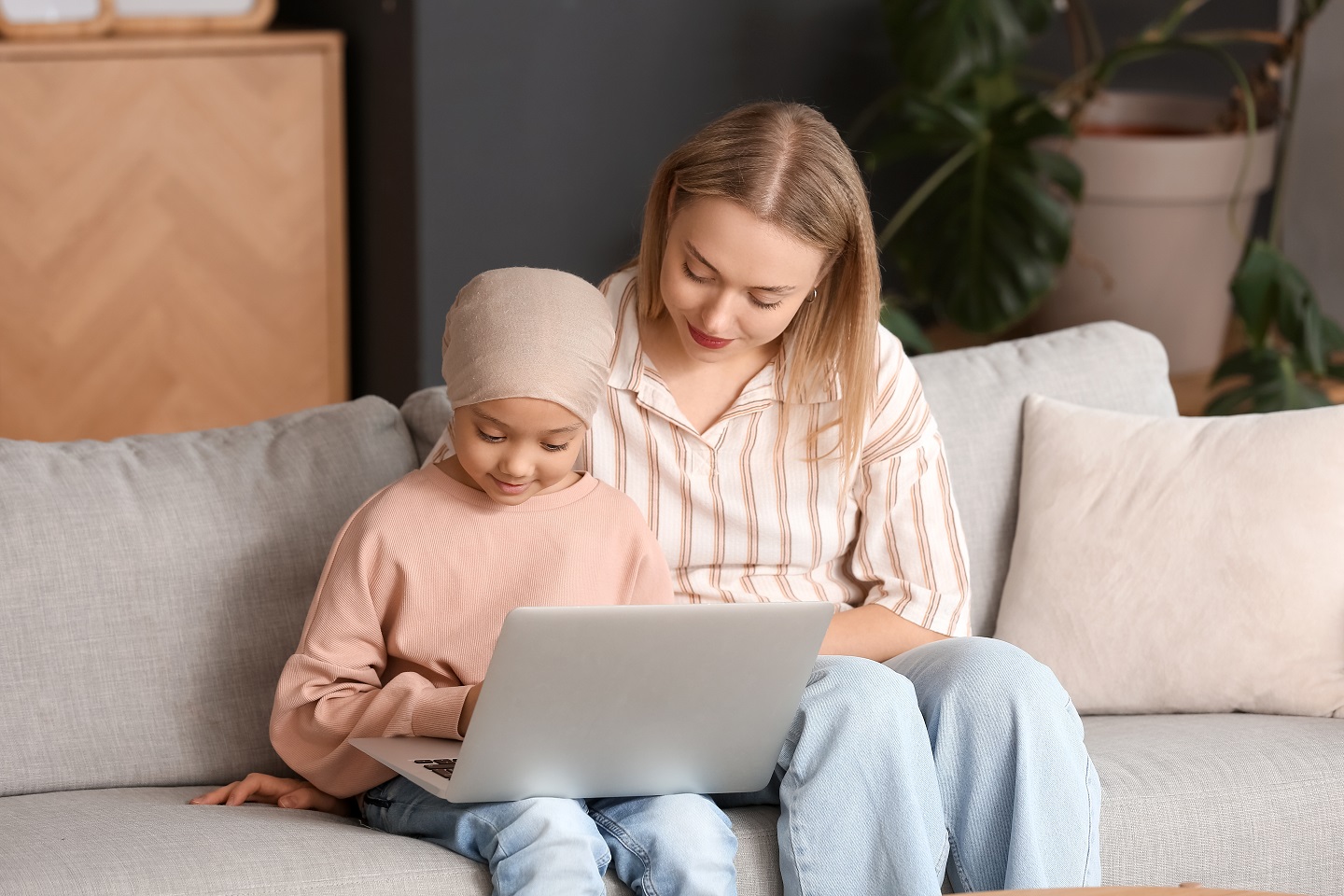Some parents of children with cancer communicate on social media. They share their journey during and after the disease, as well as the process of rebuilding their lives. These parents mainly reflect on difficulties, victories and fears. “The research question related to this issue is the role digital technology plays today in assisting and supporting parents of children in cancer remission,” says Anne-Laure Delaunay, a researcher in digital transformation and emerging technologies for management at Institut Mines-Télécom Business School.
The researcher explains that the goal is to “identify the needs with the aim of proposing solutions for parents, creating focus groups, and then, depending on the solutions, determining any other stakeholders who could be brought in for the next phase of developing a tool.” This phase would focus on consolidating the research and responding to ethical questions. It would also address the limitations of this type of technology and endeavor to avoid any possible risks, such as “parents asking unqualified people on social media for analysis and diagnoses,” she adds.
The project is funded by the French National Cancer Institute for a two-year period. Its key partner is the Imagine for Margo association. This association has been supporting cancer research projects since 2011 for a total amount of over €20 million in 13 years. It also plays an important role in supporting children and their families. It is supporting nearly 400 families with children who are currently or were previously affected by cancer. The project started with the researcher’s own personal experience: “I myself am a mother of a child who had cancer, and I noticed that we did not receive much support during the remission period. I therefore reached out to my network for help, especially among non-profit contacts.” In terms of academic partners, the research team is currently made up of three professors from Institut Mines-Télécom Business School, two from Université Paris-Saclay and one from IAE Paris Sorbonne. The team also includes six practitioners from Imagine for Margo.
Committed to assessing the needs of parents of children with cancer
One thing is clear: once the treatment is finished, “it’s like it’s all over. But there are still a lot of things happening. There are many follow-up appointments, tests and tensions due to the risks of relapse,” the researcher says. The project therefore aimed to meet a need that currently appeared to be unmet. “There is a kind of gap between treatment and healing. Nothing has been set up to help provide post-treatment support,” Anne-Laure Delaunay says.
The first phase of the project primarily focuses on a needs assessment to lay the groundwork. “Demonstrating the scientific validity of our results is essential because this is an exploratory qualitative study as in the humanities and social sciences, but applied here to a field that is still very medical and hypothetical-deductive,” says Anne-Laure Delaunay. Their ambition is to succeed in convincing the various stakeholders of the real need and the necessity of working together to respond to it.
Remission: the in-between period in the post-cancer journey
Anyone with cancer, whether they are a child or adult, begins the journey with a diagnosis determining the presence of cancer cells. The second phase is treatment, such as chemotherapy and/or radiotherapy to eventually eradicate the cancer cells. Yet some partial cells may remain despite treatment. This is when remission occurs.
During remission, which lasts an average of 5 years, the patient undergoes numerous tests, follow-up appointments and sometimes treatments to manage the late effects and risks of relapse. Some late effects experienced in the post-cancer journey are permanent, while others are temporary and reversible. There are also social aspects involved in the remission phase, as the researcher explains: “For adults, there is the return to work and for children the return to school, either because they stopped school altogether or their attendance was sporadic.”
The project identified four dimensions in the journey of rebuilding after cancer. The first is medical, logistical and administrative care. The second aspect is parenthood, which focuses on the parent’s relationship with their child, the siblings as well as with their partner. “It is important to understand that two thirds of couples separate after a child has been sick,” the project leader explains. The third component of the rebuilding process is professional with the return to work. Anne-Laure Delaunay reminds us that at least one of the two parents stops working for a short or longer period of time. Finally, the last sphere is the caregiver parent’s personal life, including their health, which is often neglected, their hobbies and friends.
Technology that supports parents during cancer remission
As for the cancer treatment period, parents’ use of social media is growing. “This is also the case with the start of peer-support. To help each other through. This especially happens during treatment,” she explains. Despite the existence of informative websites and platforms on childhood cancer, it is especially important to target parents of children with cancer and those in remission. “Peer-support is starting to emerge in France in pediatric oncology. There must be greater awareness of parents’ needs and this requires reciprocal exchanges,” the researcher points out.
The research explores the issue from three angles. It starts by focusing on what parents who are caregivers of children with cancer are “doing”, in order to gain a better understanding of their daily lives. It is then possible to analyze their use of social media technology to potentially identify any appropriate solutions. The final focus will be on the pivotal role of non-profit stakeholders in pediatric oncology, both during treatment and in the in-between period of remission.





